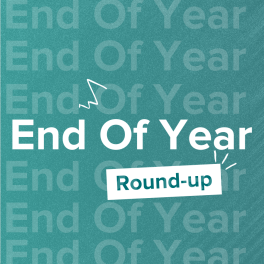
One can easily say that human rights are universal. Almost every country outlines these in its constitutions, so it must be the case. In reality, it’s not that simple.
If we look at Sikkink and Finnemore framework (1) , each norm passes through three stages: emergence, cascade, and internalization. Whenever someone, called a ‘norm entrepreneur’, becomes unsatisfied with the status quo, they come up with a new idea to change it. This is when the new norm emerges.
Once they try to get people to adopt these norms, it is in the cascade stage. Ultimately, the goal is for the norm to become so ingrained into daily life that we subconsciously subscribe to it, and it becomes the status quo.
Going back to our example of human rights, the fact that all countries have these stated in their constitutions shows that it has been internalized. However, not all people are afforded the same rights.
The 30 rights declared by the United Nations as inherent to every human being are not as universally accepted and, are, in Sikkink and Finnemore’s words, still cascading. This is rooted in the view that the Universal Declaration of Human Rights (UDHR) is indivisible and interdependent. (2) Not accepting some rights equals not accepting them all.
For example, there are many places where people still face persecution for their religious beliefs or sexuality. There are also places where women still aren’t afforded the same rights as men. (3)
If human rights have achieved a “taken-for-granted status”, why are states still calling each other out on the international platform for failing to uphold the human rights they deemed universal?
Journalists in the Philippines are being persecuted for expressing critical views of the administration when freedom of expression is safeguarded in the declaration. In 2015, refugees were refused entry into Poland, Hungary, and the Czech republic despite the right of every person to seek and enjoy asylum stated in Article 14 of the UDHR. (4)
Still, these countries received no immediate penalties. These show how the universality of human rights, sadly, has yet to be internalized in practice.
The Covid-19 pandemic is a situation that drastically changed how we live, we were given new norms. On an international scale, Finnemore and Sikkink’s framework helps us understand the global effort to establish vaccination as the normal response to pandemic mitigation.
We have had norm entrepreneurs such as the World Health Organization, who have persuaded a critical mass of states of the benefits of vaccination. We can see this in how they purchased vaccines from pharmaceutical companies.
However, vaccination remains voluntary. A norm cascade is needed on the domestic level, so WHO coupled information campaigns and requiring vaccination for mobility with employing public figures like BTS to socialize people into getting vaccinated.
Given that a significant portion of the population remains hesitant to get vaccinated, we cannot say that this norm has been successfully internalized. Thus, the universality of human rights and vaccination as a normative pandemic prevention avenue both remain in the norm cascade stage of Finnemore and Sikkink’s Norm Life Cycle.
References
1) Martha Finnemore & Kathryn Sikkink, “International Norm Dynamics and Political Change,” International Organization 52, 4 (1998): 887-917.
2) Priscila Neves-Silva, Giselle Isabele Martins & Léo Heller, “Human rights’ interdependence and indivisibility: a glance over the human rights to water and sanitation,” BMC International Health and Human Rights 19 (2019): https://bmcinthealthhumrights.biomedcentral.com/articles/10.1186/s12914-019-0197-3.
3) United Nations, “Universal Declaration of Human Rights,” United Nations, 1948, https://www.un.org/en/about-us/universal-declaration-of-human-rights.
4) “By refusing refugees, Poles, Hungarians and Czechs ‘broke EU law’,”Aljazeera, April 2, 2020, https://www.aljazeera.com/news/2020/4/2/by-refusing-refugees-poles-hungarians-and-czechs-broke-eu-law.
Support Young Creators Like This One!
VoiceBox is a platform built to help young creators thrive. We believe that sharing thoughtful, high-quality content deserves pay even if your audience isn’t 100,000 strong.
But here's the thing: while you enjoy free content, our young contributors from all over the world are fairly compensated for their work. To keep this up, we need your help.
Will you join our community of supporters?
Your donation, no matter the size, makes a real difference. It allows us to:
- Compensate young creators for their work
- Maintain a safe, ad-free environment
- Continue providing high-quality, free content, including research reports and insights into youth issues
- Highlight youth voices and unique perspectives from cultures around the world
Your generosity fuels our mission! By supporting VoiceBox, you are directly supporting young people and showing that you value what they have to say.





